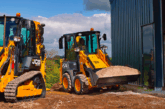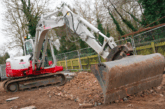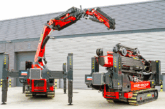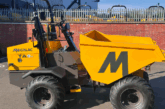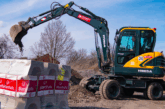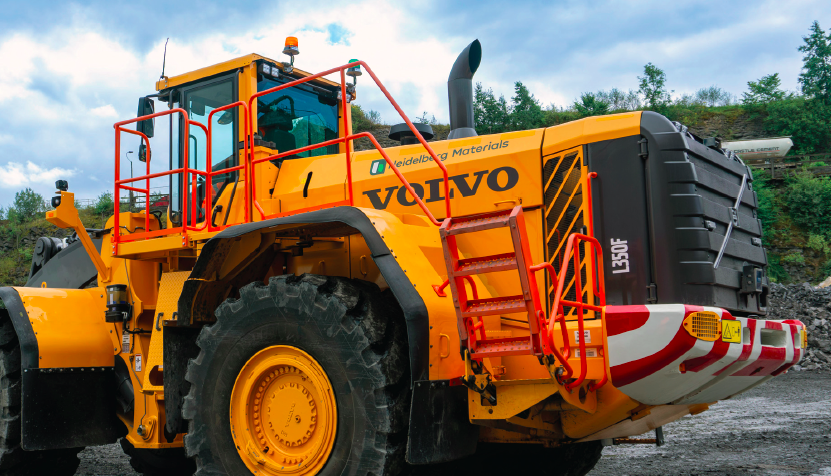
By extending the life of a Volvo L350F wheeled loader, Heidelberg Materials UK and SMT are demonstrating the power of collaboration and the circular economy in reducing carbon emissions and waste. CPN reports.
Heidelberg Materials is one of the UK’s largest suppliers of building materials, including cement – a product responsible for approximately 7% of all global CO2 emissions. While the majority of the company’s emissions stem from the production of cement, a small yet significant portion comes from the operation of its quarrying equipment. Recognising this, the company has been scrutinising its fleet of heavy mobile equipment and crushers and planning how it should evolve over the next five years.
The ideal future fleet for HeidelbergMaterials would consist entirely of zero-emission machines powered by electricity or hydrogen generated from renewable sources.
However, transitioning to these technologies requires the development of considerable supporting infrastructures. In addition, many of the company’s diesel machines are highly durable and have years of service life remaining.
To bridge the gap, Heidelberg Materials collaborated with Volvo dealer SMT to refurbish an older wheeled loader. Rebuilding older machines rather than purchasing new offers faster delivery times and smoother operations due to the existing machine’s known history.
“Rebuilding existing machines is a sustainable practice,” says Dominie Carver, a strategic account manager at SMT. “Rebuilds can extend machine life, recycle major components and significantly reduce carbon emissions. Refurbishing a used engine for continued use, for example, can save around 56% in CO2 emissions, and a transmission of about 60%.”
To explore the potential of equipment rebuilds, Heidelberg Materials and SMT selected a 14-year-old Volvo L350F wheeled loader used to load limestone into crushers at the Ribblesdale cement works in Clitheroe. Despite the 21,341 operating hours on the clock, the machine’s condition indicated that it could continue to operate reliably and productively with necessary repairs and upgrades.
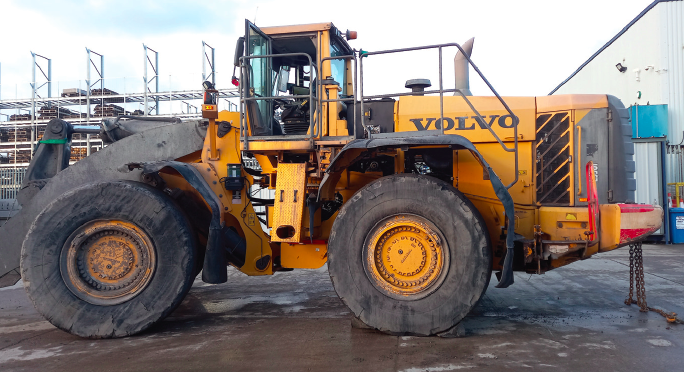 Starting from scratch
Starting from scratch
The rebuild was carried out at SMT’s Newcastle depot, where the L350F was stripped back to the chassis, with new hydraulic pumps, hoses, steering systems and refurbished cylinders installed to factory standards.
Significant work included the replacement of the driveline components (front and rear axles, engine, transmission, dropbox and prop shafts) as well as full line boring and repair of the load frame and bucket, fully overhauled with a new specialised cutting-edge and strengthened wear plates. Upgrades to the machine to bring it in line with modern Volvo standards also included new lighting and high- intensity decals for better visibility.
Meanwhile, enhancements were made to the cab for greater operator comfort, including a refurbished seat, new floor mats, replacement headlining and updated switchgear. The Comfort Drive Control system was also installed to reduce operator strain and stress. “Despite the sheer size and power of the L350F, it’s so easy to operate,” says Andrew Graham, who operates the loader. “It’s just like being in an armchair at home.
“It’s got great visibility and, due to the large bucket size, we can reduce the number of trips to the crusher. This efficiency translates to better fuel economy and reduced tyre wear.” The SMT rebuild process typically takes around 12 weeks, with machines selected based on national guidelines, service history, oil samples and component ageing. It also uses genuine Volvo parts, meaning that the machine is covered by a 24-month warranty on major components, offering Heidelberg peace of mind with no additional costs for potential issues.
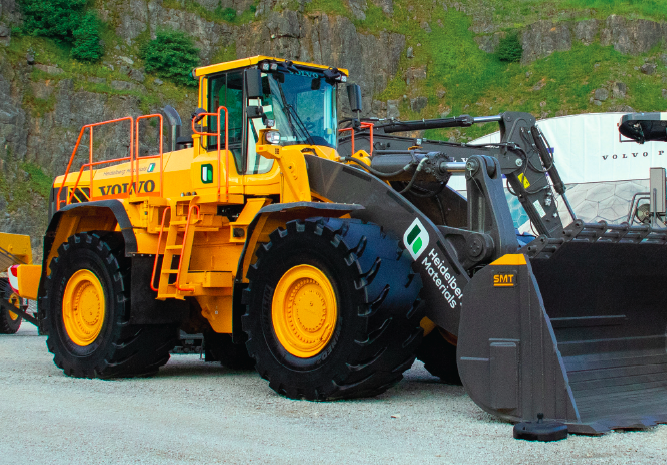 Looking forward to the future
Looking forward to the future
The collaboration between Heidelberg Materials and SMT underscores the importance of sustainability and innovation in the construction equipment industry. “Collaboration with suppliers such as SMT is crucial for achieving Heidelberg Materials UK’s sustainability goals,” explains Elliot Wellbelove, carbon innovation manager at Heidelberg. “We can rely on SMT to provide emissions reduction data for rebuilt machines, which is essential for calculating environmental benefits and integrating them into our data systems.”
“We have been a Volvo and SMT customer for a long time,” says Luke Morgan, Heidelberg fleet manager. “The SMT relationship has developed quite significantly over the past few years. We appreciate the professionalism of a structured approach towards the rebuilding of the machines and in the wider way in which SMT operates. Our confidence in the success of the rebuild was due to experience of SMT’s expertise and way of working.”

